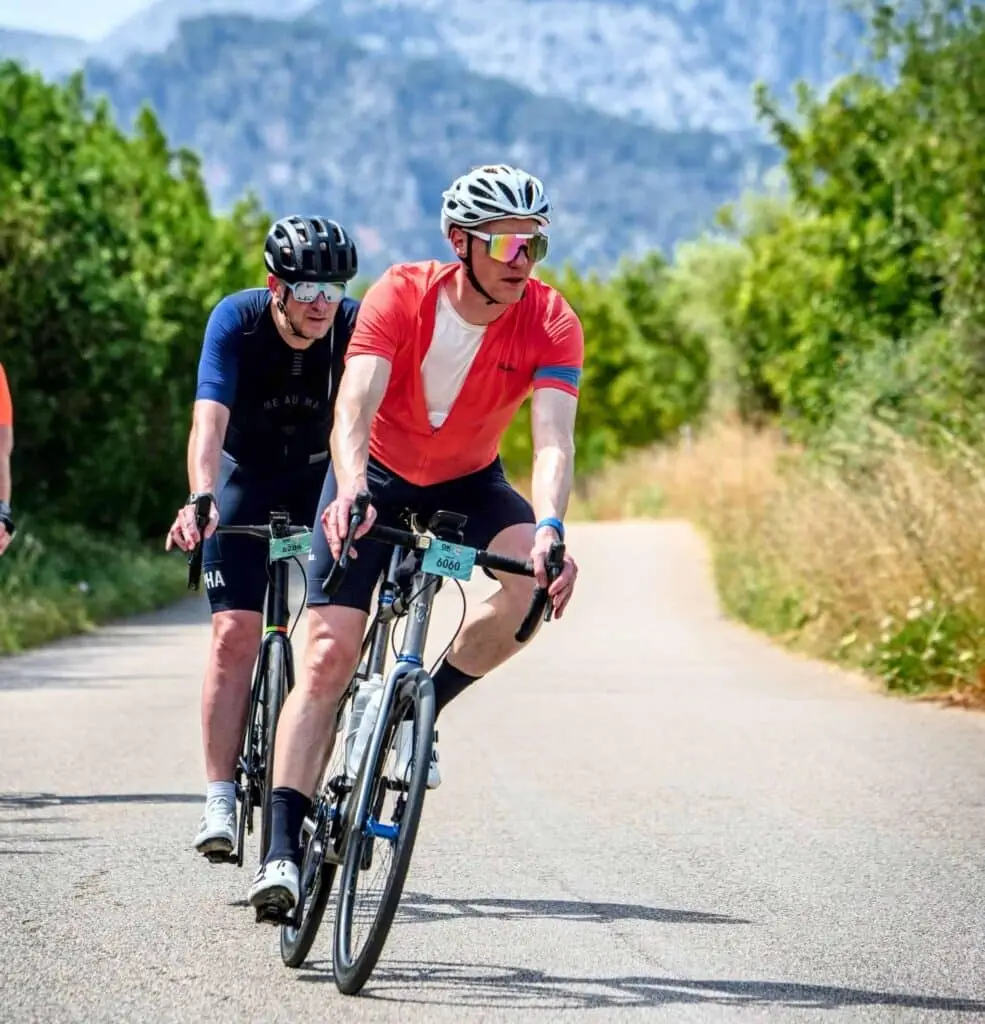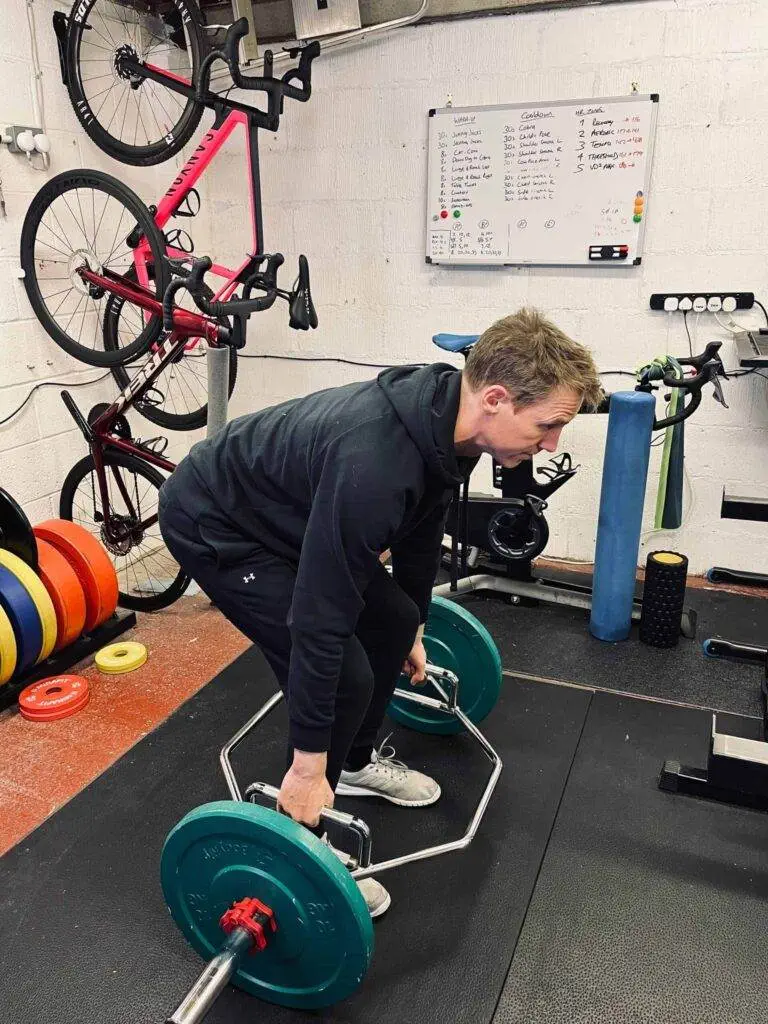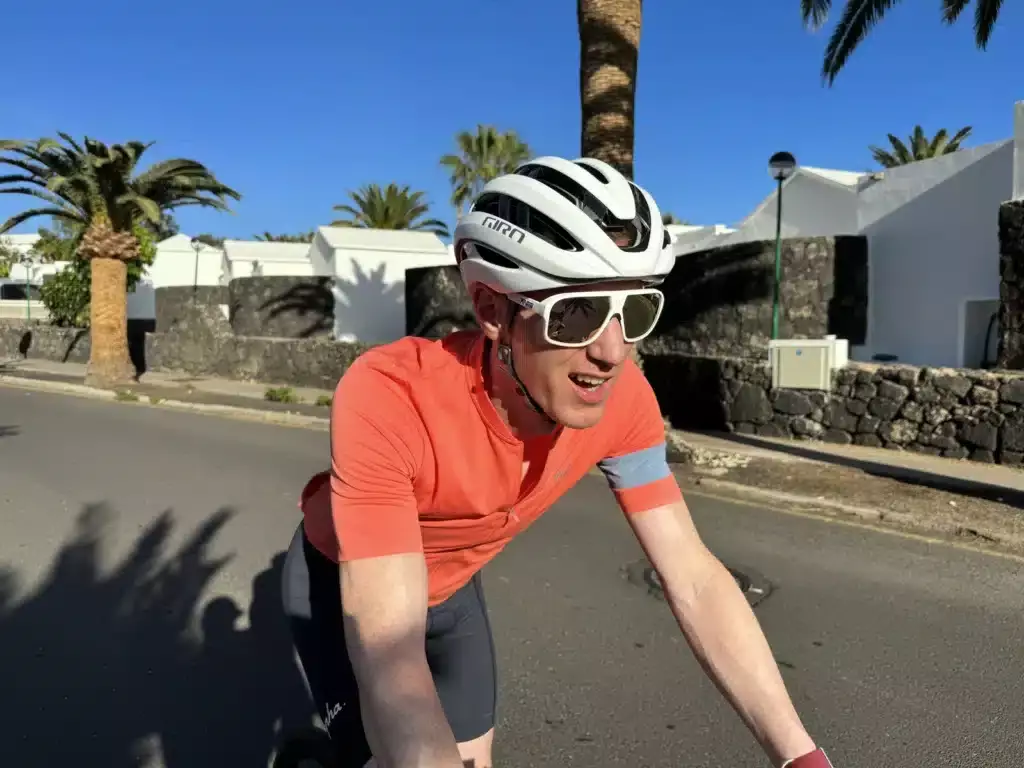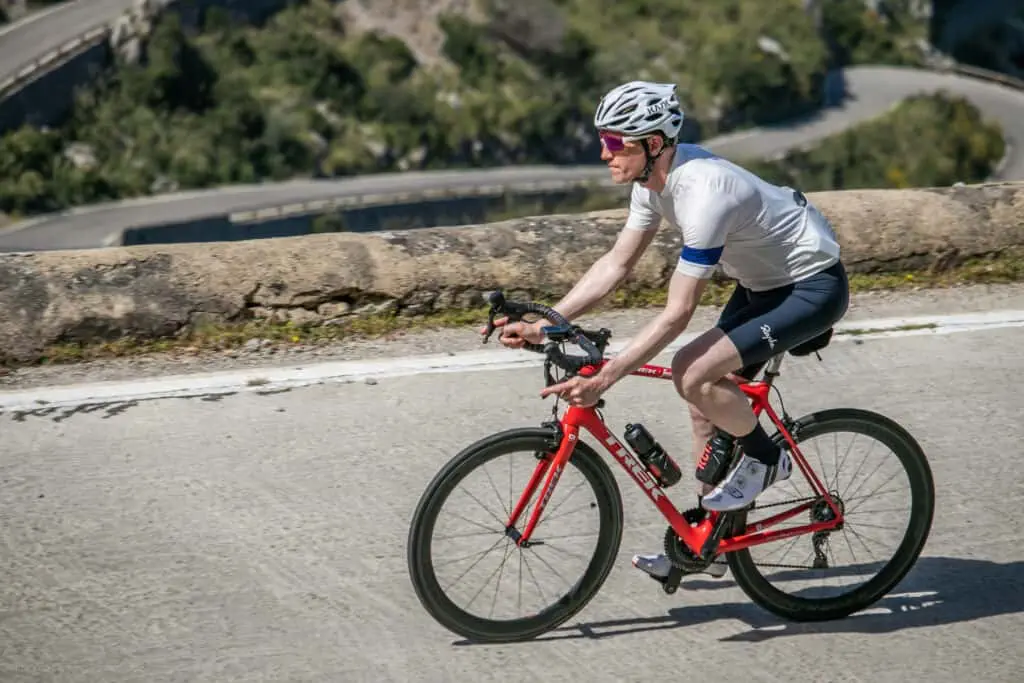If you spend a lot of time on two wheels, then you’re no stranger to the benefits of regular cycling. But does cycling increase testosterone, or have any influence on this hormone at all?
Contrary to popular belief, testosterone levels affect both men and women.
In this guide, we’re going to discuss the relationship between cycling and healthy testosterone levels. We’ll also explain how other lifestyle choices can affect your testosterone.

Key Takeaways: Does Cycling Increase Testosterone?
- Short bursts of cycling increase testosterone levels, while long-term cycling can decrease testosterone.
- Exercise intensity and cycling duration are the main factors that affect testosterone.
- Resistance training has a greater impact on testosterone than cycling does.
- Food, exercise, water, and medication play a major role in higher testosterone.
- See a professional if you’re concerned about your testosterone. Consider testosterone replacement therapy if necessary.
The Relationship Between Cycling And Testosterone
Cycling doesn’t boost testosterone levels much, but it still plays a role in higher levels of this important hormone.
High-intensity interval training (HIIT) can raise testosterone levels after exercise. However, these higher levels usually go back to normal. Although, exercises like weight training can increase testosterone a lot faster than HIIT.
Cycling in quick, intense bursts can improve cardiovascular health. It does this by dilating blood vessels and boosting blood flow. If you have low testosterone, these circulation improvements can help support healthy testosterone levels.
On the other hand, cycling for long periods of time can cause testosterone levels to drop. This is because of repetitive stress on the body when doing an endurance exercise.
If you want to increase your testosterone, don’t cycle every day. Include other types of exercises in your workout schedule. Weightlifting has an even greater impact on testosterone production.

Factors That Affect Testosterone Levels During Cycling
Here are a few factors that affect testosterone levels when you’re cycling:
- Exercise intensity: Powerful bursts of cycling can temporarily boost your testosterone levels. Endurance training can make it drop.
- Cycling duration: Long-duration endurance rides can decrease testosterone levels. When your ride is longer, it can lower serum testosterone.
- Body composition and fat percentage: Excess weight lowers testosterone levels. Regular cycling can help with weight loss. This helps regulate your testosterone levels. Keep pedaling, but not too hard!
- Rest: Separate your cycling sessions with frequent breaks. It’s important to make you have enough time to recover. This will help you maintain ideal testosterone levels. Be careful about training too hard, because you can cause hormonal imbalance.
Cycling is a great exercise for muscle building and has many health benefits, including hormone regulation. But, cycling is not the only activity that influences testosterone levels.
There are many other lifestyle factors that also impact testosterone.

Other Lifestyle Factors That Impact Testosterone Levels
The way you live your life day-to-day can add contribute to your levels of testosterone. It’s important to stay healthy by keeping an eye on your daily habits.
Here are other lifestyle factors that impact testosterone:
- Resistance training: Strength training can help increase testosterone in a natural way. Aerobic exercise is also effective but has less drastic impacts.
- Blood sugar: It’s important to maintain stable sugar levels. Eat foods low in calories and fat for healthy levels of testosterone.
- Sleep quality: Good rest is essential to produce a healthy growth hormone balance.
- Weight: People that are overweight tend to have lower testosterone levels. Losing excess body fat can help regulate hormone levels.
- Vitamin D supplements: You can increase Vitamin D levels by eating fish or spending time in the sun. This can have a positive impact on testosterone.
- Erectile and sexual dysfunction: Sexual activities affect your testosterone. Low testosterone can cause some problems issues with sexual function. Normal sexual activity can also increase testosterone.
- Smoking: Cigarettes lower your testosterone levels. Giving up smoking can have a positive impact on testosterone.
- Toxins in the environment: Certain toxins could lead to decreased testosterone levels. Avoid pesticides if you can.
- Drugs and medical conditions: Medication that affects testosterone include painkillers and cortisol. Diabetes and hormonal imbalance also play a role.
- Other natural lifestyle choices: Losing weight increases testosterone levels. Lowering cortisol levels and avoiding alcohol also helps.
As you can see, cycling is not the only activity that could impact testosterone levels. It doesn’t matter if you’re a professional cyclist or a newbie. Your cycling methods and lifestyle choices affect your health!
If you’re concerned about your testosterone, you may have to make some drastic lifestyle changes. If this doesn’t work, then it’s best to speak to a healthcare professional. Consider testosterone replacement therapy in more extreme cases.

FAQs
Which exercises increase testosterone?
Regular exercise can increase testosterone and improve energy levels. Some examples of these are lifting weights, squats, and yoga.
What does cycling do for the male body?
Cycling has benefits for both men and women. It stimulates your lungs and heart, which can help to prevent strokes and heart attacks. It also provides health benefits by improving circulation in your body. Additionally, cycling plays a role in strengthening muscles used in intercourse.
Does cycling increase growth hormone?
Exercises like cycling increase the hormones in your blood, including growth hormones. This doesn’t affect adults who have already gone through puberty. Cycling increases growth hormones for teenagers.
